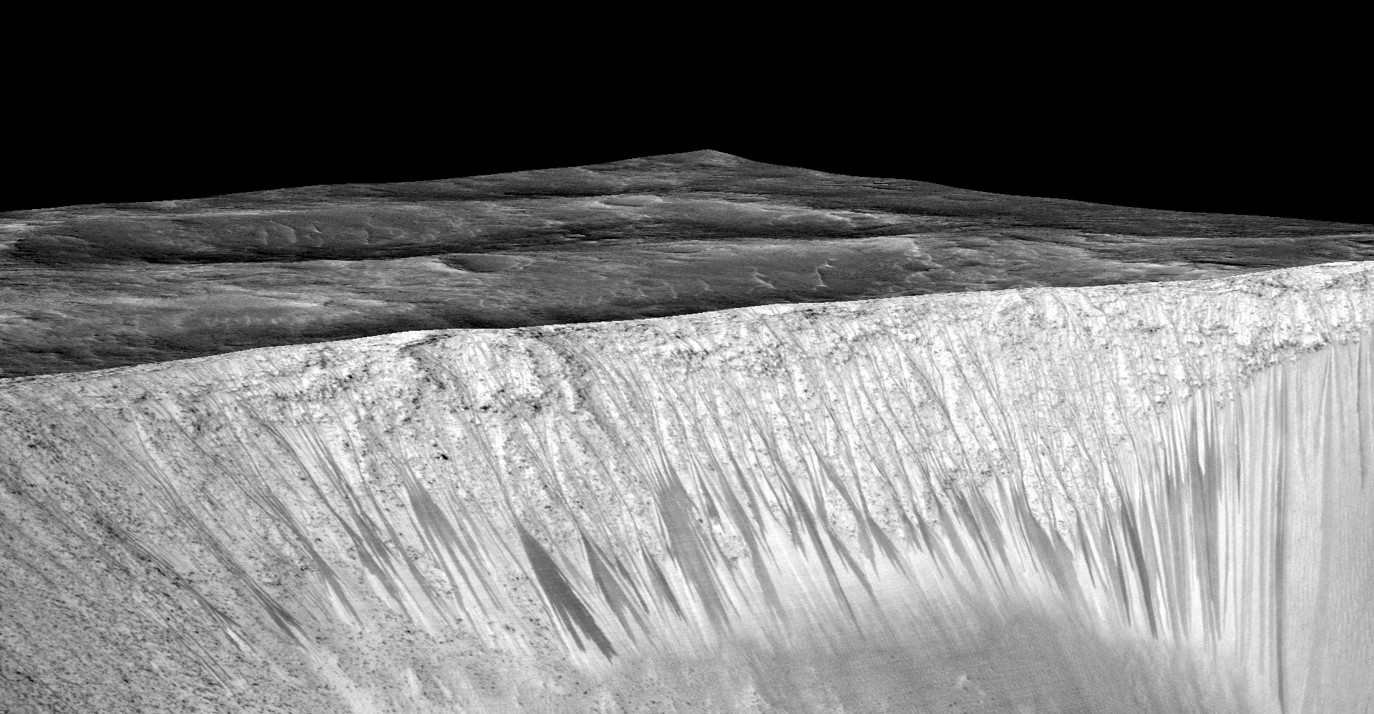
Trinity Scientists Track Down Evidence of Water on Mars
Scientists from Ireland are the most recent team to detect the evidence of water on Mars!
The concept of water on Mars is yet poorly understood by the global astronomers and scientists. But a new study has come up with some glimpse of a watery past of the Martina Planet, which eventually may lead paths some more ground-breaking explorations. A team of astronomers from Ireland has discovered a land on the Martina Surface, which is likely to be flooded with water some years ago. The newly discovered piece of land was found in a prehistoric valley of the Red Planet. From its outer impression, the patch of land seems to have been streamed by water courses in the not-so-distant past. After stumbling upon the potentially flooded area, the researchers have expressed their expectations regarding the presence of past life on the Red Planet.
The study was conducted by the astronomers from Trinity College Dublin, Ireland and recently has been published in the Science journal – Geophysical Research Letters. Co-led by Dr. Mary Bourke from Trinity, and her colleague, Professor Heather Viles, from the University of Oxford, the study has come up just a few days after the US-based researchers detected the running water causing the breaking down of extensive channels slopes on Mars.
As per the new study reports, on Earth, desert dune fields are occasionally swamped by water in the regions of unpredictable groundwater, and where the water bodies like lakes, rivers and coasts are located in near distance. These episodic floods, called ‘arcuate striations’, leaves tattletale patterns behind them and the researchers have spotted such a periodic pattern of the wave in one of Martian regions.
A number of studies held previously have suggested the Martian Surface host fluid water under its sturdy crust. Usually, the melt of glacial layers triggers the flow out of the water. But Martian glaciers are estimated to be dehydrated, down to the year-over-year evolutions. And the new study has fuelled all such hypothesis regarding the presence of water on Mars.
According to Bourke, these findings are extremely significant to explore the possibility of life on Red Planet. Firstly, the sand dunes, presented on the Mars reveal the solid evidence regarding the watery activities on the planet in the not-so-distance past. The scientists are expecting the presence of water close to the equator of Mars. Moreover, the same site is also supposed to hold clues to ancient Martian lives, which is still a matter of ambiguity.
Researchers, while working in Namibia – a country in southwest Africa have come across these possibilities. According to Bourke, following our fieldwork in Namibia, we hypothesized that comparable ‘arcuate striations’ found on Mars’ surface, located between sand dunes are also the reliable indications of variable levels of salty groundwater.


